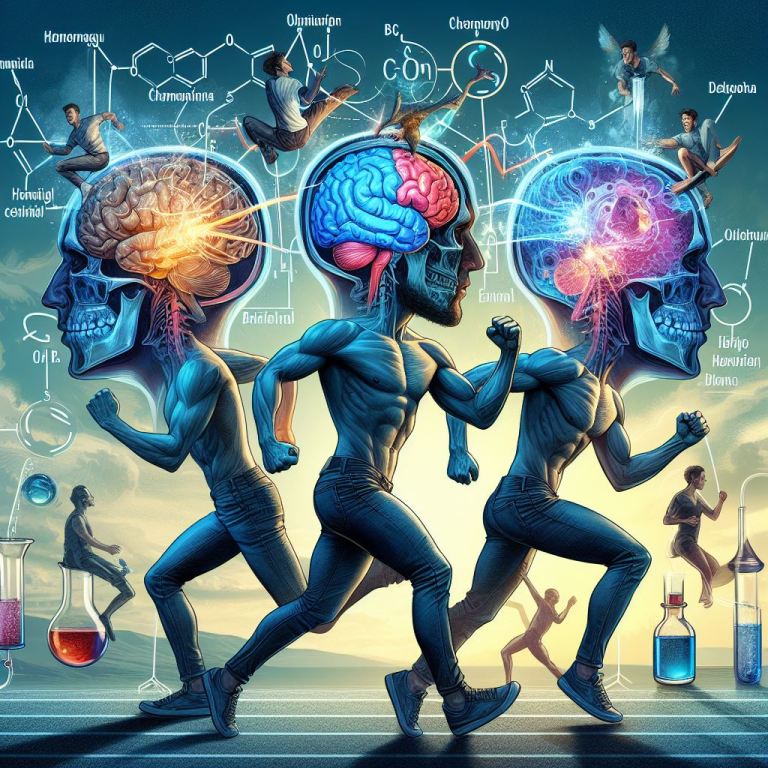The intricate workings of the human brain never cease to amaze us. Among the various mysteries it holds, the role of neurotransmitters in mental health conditions remains a subject of intense research. One such disorder, Borderline Personality Disorder (BPD), is characterised by emotional dysregulation and unstable relationships. Today, we dive into the realm of neurochemistry, exploring the potential involvement of neurotransmitters in BPD, shedding light on how these chemical messengers may contribute to the challenges faced by those living with the disorder.
Defining Borderline Personality Disorder
Borderline Personality Disorder is a complex psychiatric condition that affects approximately 1-2% of the population. People with BPD often struggle with intense and unstable emotions, difficulty with self-identity, impulsive behaviours, and unstable relationships. Although the exact causes of BPD are not yet fully understood, researchers increasingly believe that neurotransmitter dysfunction may play a crucial role in the development and perpetuation of the disorder.
Serotonin: The Mood Regulator
Serotonin, often dubbed as the “feel-good” neurotransmitter, is closely associated with regulating mood, sleep, and appetite. Individuals with BPD often experience emotional highs and lows, indicative of serotonin imbalance. Several studies suggest that decreased serotonin availability contributes to these mood fluctuations, potentially explaining the intense emotions and emotional sensitivity seen in BPD. Low levels of serotonin may contribute to unstable self-esteem, impulsivity, and emotional reactivity.
Dopamine: Reward and Impulsivity
Dopamine is a neurotransmitter linked to reward, pleasure, and motivation. Research suggests that individuals with BPD may have altered dopamine signalling, leading to heightened impulsivity and a desire for immediate gratification. This heightened reward response may explain risky behaviours, such as self-harm and substance abuse, often seen in individuals with BPD. Disturbances in the neurotransmitter dopamine may contribute to the struggle with impulsivity and difficulty controlling emotional urges.
GABA: Inhibiting Emotional Reactivity
GABA (Gamma-Aminobutyric Acid) is an inhibitory neurotransmitter known for its calming effects. In BPD, research indicates that GABA dysfunction may contribute to increased emotional reactivity. Specifically, reduced GABA signalling may impair the brain’s ability to regulate emotions, leading to heightened responses to stressors and difficulties modulating emotional intensity.
Glutamate: Excitatory Imbalances
Glutamate, the brain’s primary excitatory neurotransmitter, plays a crucial role in various cognitive functions. Studies suggest that individuals with BPD may exhibit heightened glutamate levels, leading to an imbalance between inhibitory and excitatory systems in the brain. This glutamate dysregulation may contribute to cognitive difficulties, impulsivity, and emotional instability seen in BPD.
Neurotransmitters and BPD in a Nutshell
1. Neurotransmitters are chemical messengers in the brain.
2. In Borderline Personality Disorder (BPD), certain neurotransmitters may be imbalanced.
3. This imbalance can lead to symptoms such as mood swings, impulsivity, and emotional instability.
4. Treatment for BPD may involve addressing these neurotransmitter imbalances through medication or other therapies.
5. By restoring a healthy balance of neurotransmitters, symptoms of BPD can be better managed.
Final Thoughts
While the exact causes of Borderline Personality Disorder remain uncertain, the emerging research in neurochemistry lends valuable insights into its complex nature. The delicate dance among neurotransmitters serotonin, dopamine, GABA, and glutamate suggests their involvement in the development and symptoms of BPD. However, it is important to note that BPD is a multifactorial disorder, influenced by genetics, early-life experiences, and environmental factors in addition to neurochemistry.
Understanding the role of neurotransmitters in BPD brings us one step closer to unravelling the mysteries of the disorder and may pave the way for more targeted and effective treatments in the future. Continued research in this field will undoubtedly provide new insights into the intricate interactions within the brain, ultimately offering hope for individuals living with Borderline Personality Disorder.












Pingback: The Passive-Aggressive Personality Disorder: Unveiling the Unseen Conflict
Pingback: Exploring the Role of Neurotransmitters in Delusional Disorder